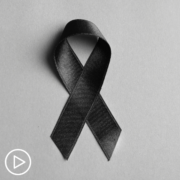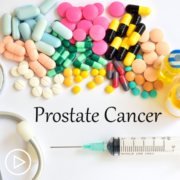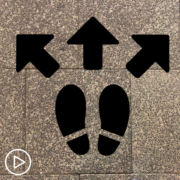Advice for Accessing Advanced Non-Melanoma Skin Cancer Clinical Trials
Advice for Accessing Advanced Non-Melanoma Skin Cancer Clinical Trials from Patient Empowerment Network on Vimeo.
Participating in advanced non-melanoma skin cancer clinical trials may feel overwhelming for some patients. Dr. Soo Park discusses how clinical trials fit into patient care and shares advice for overcoming obstacles to accessing cutting edge therapies.
Dr. Soo Park is a Medical Oncologist at Moores Cancer Center at UC San Diego Health. Learn more about Dr. Park.
Related Resources:

Non-Melanoma Skin Cancer Staging | What Patients Should Know |

Advanced Non-Melanoma Skin Cancer | Establishing a Treatment Plan |

An Expert’s Perspective on Advanced Non-Melanoma Skin Cancer Research |
Transcript:
Katherine:
Beyond what has been approved to treat advanced non-melanoma skin cancer, where do clinical trials fit in?
Dr. Park:
Clinical trials are great, because they’re the reason why we have the drugs that we have today that are working so effectively. And so, I’m really fortunate to be at a center where we offer clinical trials for patients.
Clinical trials always fit in at any point in the journey, as long as they fit your disease. So, most of the clinical trials we have are for patients that have advanced disease, not for early stage, because the early stage patients don’t really need it; because with just simple surgery, they tend to do really well, and their cancer doesn’t really ever come back and cause issues.
But clinical trials are really important, because they’re the only way we can study a promising treatment option; see how well it works, and if it works really well, then move it further on to hopefully help a lot of other people. And that’s why we have immunotherapy today – is through clinical trials; and immunotherapy is used for lots of cancers.
Katherine:
Are there barriers to accessing trials? And if so, do you have any recommendations on how to tackle them?
Dr. Park:
Yeah, there are barriers to trials, and I think the thing that the cancer community is really trying to work on is barriers to accessing trials if you’re from an underrepresented population in medicine. So, based on your socioeconomic status, meaning how much money do you make or what your education level is, what race are you, what ethnicity, what is your background; because we know that there’s a disparity for those individuals. And so, I think really asking your doctor, staying curious; asking them, “Could a clinical trial help me?”
Even if you have no idea of really what trials there are, or what they really mean, you can just throw that word out; and that then, the doctor knows that you’re potentially interested, and they can actually give you the information and help you learn more about it, even if you don’t know much about it; because I think it’s still quite a black box, and we’re trying to overcome this barrier, but it’s difficult.
Katherine:
And what about researching clinical trials online? What sites would you recommend?
Dr. Park:
So, I have to admit that there are multiple sites, but sometimes they are not very patient-friendly. Even whenever I look at them, they are not very friendly. I think the largest repository of clinical trials is the NCI database. It’s just where every clinical trial that’s open has to be registered, and it’s run by the federal government, I believe. And because it’s not super regulated, it’s just the person working on the trial entering information, and they’re typically of a medical background, sometimes the information is not very easy to digest or understand.
So, I think really just letting your medical team know that you might be interested in a trial, then they can help you find the right trial for you. And if they don’t have one, they can tell you other areas or other centers that might have one. You are more than welcome to go search in Google and all that, but it can be really hard, and then I don’t want that to make the patient feel that this is not for them.









